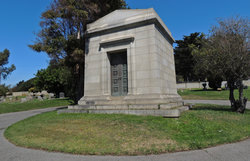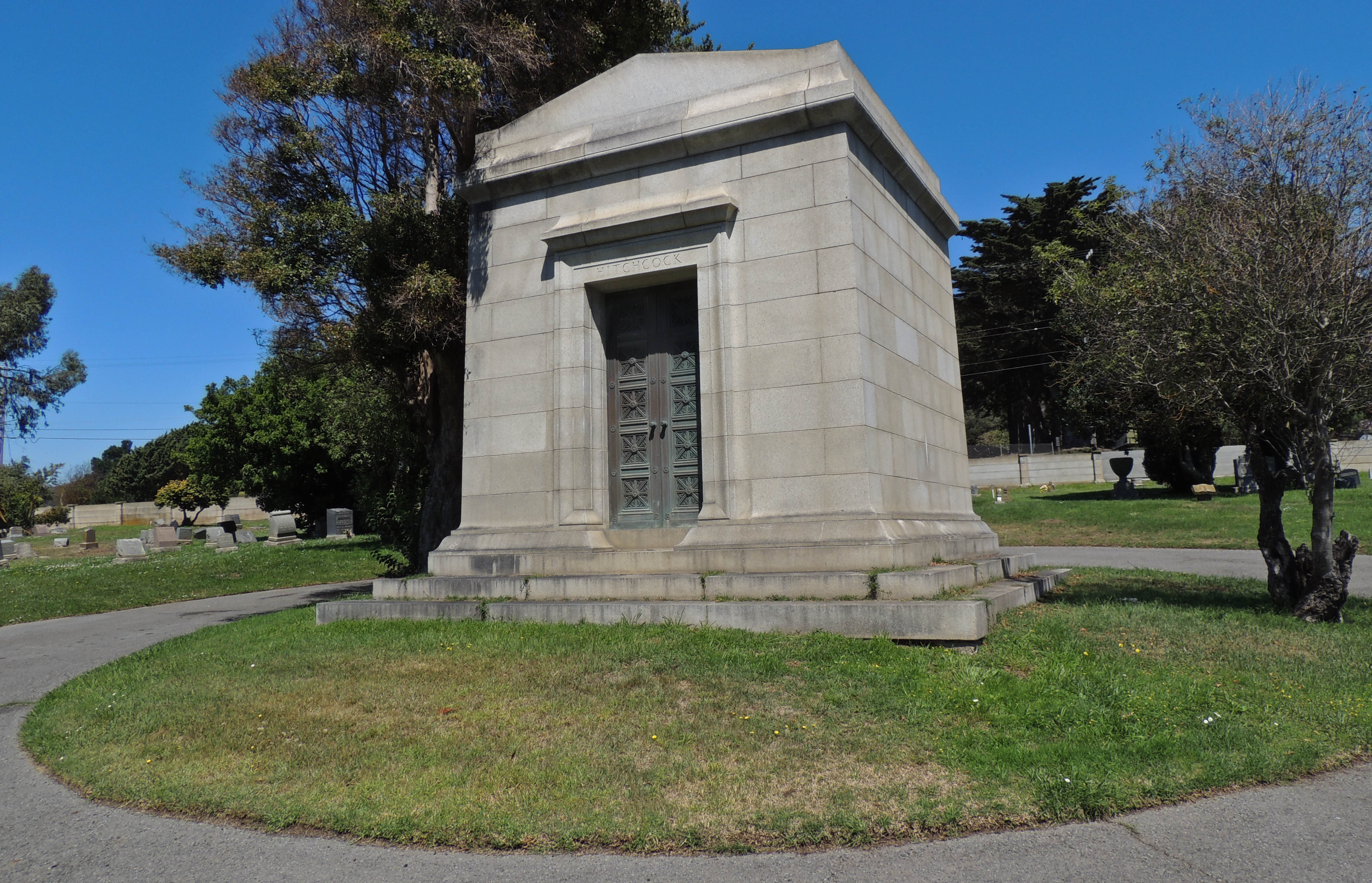Dr. Hitchcock, who has long resided in the Upper Napa Valley died Friday last at the residence of his daughter, Mrs. Lillie Coit, his age being, 78 years. His health had not been good for several months his chief affliction being disease of the kidneys.
Saturday morning his remains were taken to San Francisco, and at 1:30 p.m. yesterday the funeral took place from Trinity church. The body has been embalmed and will be taken to Maryland for burial. The Examiner of Sunday last contained the following facts and incidents connected with the life of the deceased:
Few throughout the Union and none in California were more widely known and universally respected than the deceased. To all he was a friend and to many a benefactor.
Born in Maryland in 1812, he was educated at Baltimore for the medical profession, and made surgery his specialty.
When quite young he was appointed to the army, and for twenty years he remained in the service of his country, doing good service on the battlefield. During the rebellion in Canada in 1839, Dr. Hitchcock was with General Scott, stationed on the northern frontier. Two years before, he wedded the lady who has been his faithful help-meet during life, and who now survives him.
At the time of the ceremony Mrs. Hitchcock was but 17 years old and had but just left school. Her soldier husband was twenty-five.
Upon severing his connection with General Scott's command the young physician went south and joined the army of Gen. Harney, which was about to leave for Florida to suppress the Seminole Indians.
During the war he did good service as chief of the medical staff, and his wife was always by his side to aid him. For eighteen months the couple lived in their little tent, most of the time on the battle-field.
After the war Dr. Hitchcock returned to Savannah and remained there for some time. He was an intimate friend of Alexander H. Stephens and was with the latter at Atlanta when the attempt was made to assassinate the Georgia statesman.
Upon the breaking out of the Mexican war the Surgeon came north, accompanied by his wife, and was ordered to the scene of strife. With Gen. Wool's force he made the long march from Carlysle Barracks, Pennsylvania, to Buena Vista, Mexico, and arrived in time to take charge of the medical corps, which performed such praiseworthy labors after the battle. During the three days of the terrible strife the well-known form of the deceased was observed passing from point to point in the field, doing his duty whilst the iron hail tell about him on all sides. In his report of the battle to headquarters, Gen. Taylor devoted an entire paragraph to the bravery of Dr. Hitchcock.
It was on the field of Buena Vista that the tie of friendship was firmly cemented between the Surgeon-in-chief and Jefferson Davis. The latter was in command of regiment and was bravely fighting when a rifle ball passed through his shoulder. The soldier fell from his horse and it was several moments before he was found by Dr. Hitchcock, who, taking the wounded man in his arms, carried him safely to shelter.
After the treaty of peace had been signed, in company with Gen. Twiggs, Dr. Hitchcock proceeded through Texas establishing hospital stations.
In June, 1851, he arrived in California, acting as Medical Director of Gen. Twiggs's staff. The latter gentleman was a distant relative. A few months after arrival, he was made Director in charge of all stations on the Coast, with headquarters at San Francisco, then a beggarly array of tumble-down huts. By special permission of the government, he was allowed to engage in regular practice and soon established a lucrative business.
In 1854 he resigned from the army, in order to give his entire time to his private practice, which in three years had increased enormously. He did not however forget the poor, and many a family arriving here stricken with fever owe their all to the pioneer. In the practice of his profession, Dr. Hitchcock was frequently called upon to be present at duels. Among the most famous was the Gwin-McCorkle meeting. When Ferguson fell pierced by the ball from Pen Johnston's revolver, Dr. Hitchcock was first to reach his side and relieve his agony. At over thirty duels Dr. Hitchcock was on hand.
When the Southern States seceded and Jefferson Davis was elected to the Presidency of the Confederacy, his first official act was to offer deceased the position of Chief Medical Director of the Southern Army. The letter never reached its destination. Gen. Sumner, then in charge of this port, under instructions from Washington, opened all communications addressed to suspected persons. As the Hitchcocks were known to be Southerners their mail became public property, and the letter from Davis fell into the Government's hands.
Among the most intimate friends of the surgeon during the early days was Lieutenant Derby of the army, better known perhaps under his nom de plume of John Phoenix. To his friend the young author dedicated his first work, "Phoenixiana," a book which had an immense sale. During the past few years the dead physician spent most of his time at his lovely country home. The only offspring to his union was a daughter, Lillie, now Mrs. Howard Coit. She was at the pioneer's bedside when he breathed his last, and accompanied the body to this city.
The Weekly Calistogan, April 8, 1885
Dr. Hitchcock, who has long resided in the Upper Napa Valley died Friday last at the residence of his daughter, Mrs. Lillie Coit, his age being, 78 years. His health had not been good for several months his chief affliction being disease of the kidneys.
Saturday morning his remains were taken to San Francisco, and at 1:30 p.m. yesterday the funeral took place from Trinity church. The body has been embalmed and will be taken to Maryland for burial. The Examiner of Sunday last contained the following facts and incidents connected with the life of the deceased:
Few throughout the Union and none in California were more widely known and universally respected than the deceased. To all he was a friend and to many a benefactor.
Born in Maryland in 1812, he was educated at Baltimore for the medical profession, and made surgery his specialty.
When quite young he was appointed to the army, and for twenty years he remained in the service of his country, doing good service on the battlefield. During the rebellion in Canada in 1839, Dr. Hitchcock was with General Scott, stationed on the northern frontier. Two years before, he wedded the lady who has been his faithful help-meet during life, and who now survives him.
At the time of the ceremony Mrs. Hitchcock was but 17 years old and had but just left school. Her soldier husband was twenty-five.
Upon severing his connection with General Scott's command the young physician went south and joined the army of Gen. Harney, which was about to leave for Florida to suppress the Seminole Indians.
During the war he did good service as chief of the medical staff, and his wife was always by his side to aid him. For eighteen months the couple lived in their little tent, most of the time on the battle-field.
After the war Dr. Hitchcock returned to Savannah and remained there for some time. He was an intimate friend of Alexander H. Stephens and was with the latter at Atlanta when the attempt was made to assassinate the Georgia statesman.
Upon the breaking out of the Mexican war the Surgeon came north, accompanied by his wife, and was ordered to the scene of strife. With Gen. Wool's force he made the long march from Carlysle Barracks, Pennsylvania, to Buena Vista, Mexico, and arrived in time to take charge of the medical corps, which performed such praiseworthy labors after the battle. During the three days of the terrible strife the well-known form of the deceased was observed passing from point to point in the field, doing his duty whilst the iron hail tell about him on all sides. In his report of the battle to headquarters, Gen. Taylor devoted an entire paragraph to the bravery of Dr. Hitchcock.
It was on the field of Buena Vista that the tie of friendship was firmly cemented between the Surgeon-in-chief and Jefferson Davis. The latter was in command of regiment and was bravely fighting when a rifle ball passed through his shoulder. The soldier fell from his horse and it was several moments before he was found by Dr. Hitchcock, who, taking the wounded man in his arms, carried him safely to shelter.
After the treaty of peace had been signed, in company with Gen. Twiggs, Dr. Hitchcock proceeded through Texas establishing hospital stations.
In June, 1851, he arrived in California, acting as Medical Director of Gen. Twiggs's staff. The latter gentleman was a distant relative. A few months after arrival, he was made Director in charge of all stations on the Coast, with headquarters at San Francisco, then a beggarly array of tumble-down huts. By special permission of the government, he was allowed to engage in regular practice and soon established a lucrative business.
In 1854 he resigned from the army, in order to give his entire time to his private practice, which in three years had increased enormously. He did not however forget the poor, and many a family arriving here stricken with fever owe their all to the pioneer. In the practice of his profession, Dr. Hitchcock was frequently called upon to be present at duels. Among the most famous was the Gwin-McCorkle meeting. When Ferguson fell pierced by the ball from Pen Johnston's revolver, Dr. Hitchcock was first to reach his side and relieve his agony. At over thirty duels Dr. Hitchcock was on hand.
When the Southern States seceded and Jefferson Davis was elected to the Presidency of the Confederacy, his first official act was to offer deceased the position of Chief Medical Director of the Southern Army. The letter never reached its destination. Gen. Sumner, then in charge of this port, under instructions from Washington, opened all communications addressed to suspected persons. As the Hitchcocks were known to be Southerners their mail became public property, and the letter from Davis fell into the Government's hands.
Among the most intimate friends of the surgeon during the early days was Lieutenant Derby of the army, better known perhaps under his nom de plume of John Phoenix. To his friend the young author dedicated his first work, "Phoenixiana," a book which had an immense sale. During the past few years the dead physician spent most of his time at his lovely country home. The only offspring to his union was a daughter, Lillie, now Mrs. Howard Coit. She was at the pioneer's bedside when he breathed his last, and accompanied the body to this city.
The Weekly Calistogan, April 8, 1885
Family Members
Advertisement
Explore more
Sponsored by Ancestry
Advertisement




